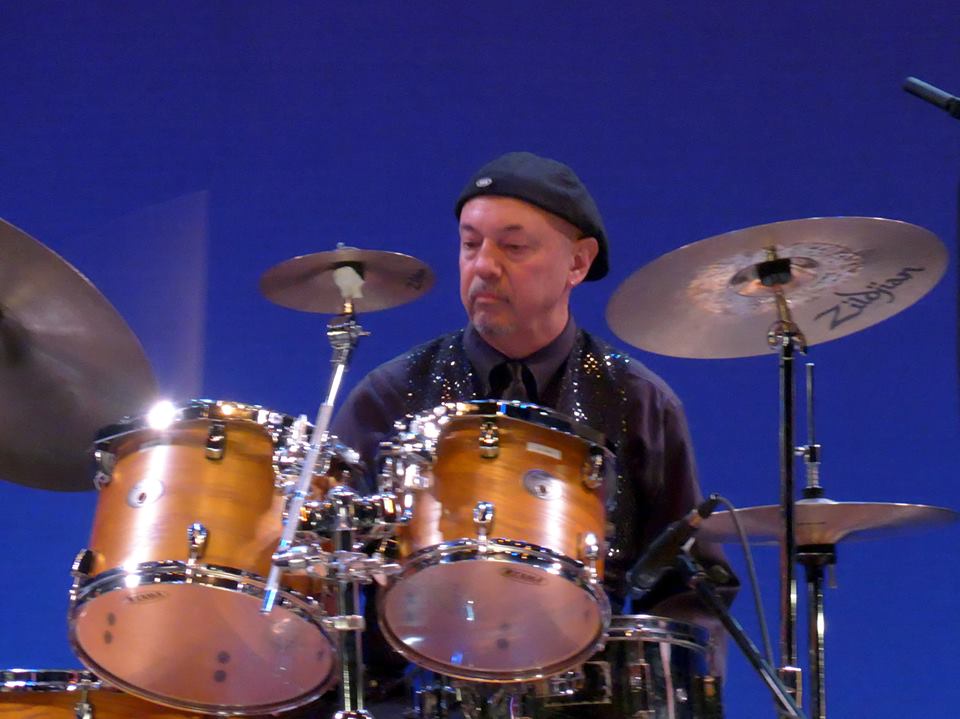Bobby Deitch <br>“Mind, Body, Spirit…Drums!???
Hi, MD readers! This is fellow drummer Bobby Deitch. It took a while for me to decide exactly what the subject would be for my second time around at writing a blog for Modern Drummer.
After lots of pondering I came up with a theme that is very personal to me, as well as to several drummer friends and family. Everyone who catches the “drum bug” or “drumitis” and makes the decision to dedicate their time (and many times, money), whether amateur or professional, understands the discipline it takes to become really proficient at anything, let alone a musical instrument. We spend countless hours practicing rudiments and learning beats and fills for hours, days, and years.
We experience seeing and listening to other great drummers perform at shows, on videos, and on recordings. We experience the thrill and the rush of hearing a great drummer perform, check out their grooves, their fills, gear, time, and pocket in the hope of incorporating something they do in to our own repertoire.
As we drummers eventually discovered, drumming is both mentally and physically demanding, possibly even more so than with any other musical instrument.
Drumming is demanding mentally because our brain must analyze and decipher every groove, every fill, and every movement. Our brain must find a way to coordinate our bodies and be aware of the music and those we are performing with who are contributing the melodies, harmonies, and dynamics. There’s a constant push and pull with our fellow instrumentalists (and vocalists) in a quest to find that sweet spot where the music makes us feel good. Advertisement
Physically, our arms (shoulders, elbows, wrists), hands (fingers and knuckles), legs (knees, ankles, thighs, and calves), feet (heels, toes), head, neck, torso, and back are pretty much constantly moving for one, two, three, or more hours at a time.
For all of the mental and physical stress we place on our bodies and minds, we must achieve a level of proficiency that allows us to create and execute ideas from our brain to the muscles in our bodies. In order to free up that flow of energy, nothing is more important than clearing the pathways that inhibit and suppress our musical goals and taking serious steps to heal ourselves physically, psychologically, and spiritually.
Obviously, this is easier said than done. The physical demands of drumming call for enormous amounts of stamina when performing. If you are not in some kind of exercise regimen, I suggest you do so. I remember Gorden Campbell, one of the former drummers for Earth Wind and Fire, telling me how important it was for him to workout constantly in order to play the demanding songs of EWF’s repertoire. That inspired me, and although I sometimes became lazy or busy, I always returned to working out by rigorous walking, jogging, and using resistance bands to help build muscle tone. You don’t need weights. Those resistance bands are great, and you can take them anywhere. Getting yourself in the best physical shape you can will not only increase your stamina, but will allow you to be a more solid player and increase your confidence for any possible drumming situation. Advertisement
Many of us equate performing music as a kind of high or rush. It’s the wonderment of music that takes us to that place. However, too many of us develop addictions that delude us into thinking that we can perform at a higher level if we are high on various drugs or alcohol, or eat exorbitant amounts of unhealthy food, to the point of being addicted. Let’s face it, most of us possess some kind of addiction, some more than one, but facing your demons in the right way will open up a whole new world of musical possibilities and pathways that you may not be able to see now. Find a program that will help you deal with these weaknesses and face them head on. Take it minute-by-minute, hour-by-hour, and day-by-day.
Whether or not you were raised religiously, I recommend spending time alone with a higher power of your choice. Getting in touch with your spiritual self will make you a more “whole” person, as spirituality puts you in touch with your authentic self, who you really are, and not what others perceive you to be.
“Drumming is an ancient technique that has been used to shift states of consciousness. In various ancient cultures chanting, rhythmic breathing and drumming constellated an ancient technique used to synchronize the body with the mind in order to explore varying levels of consciousness. The physical activity of creating repetitive sounds entrained right and left brain activity to alter brainwaves to a relaxed theta state of consciousness. In this relaxed state creativity, intuitive insight, healing and spiritual awareness contributed towards a condition of healing of physical, psychological, and emotional wounds.” (Layne Redmond, 1997) Advertisement
Being in touch with your spiritual self will help to clear pathways and contribute to becoming a more proficient drummer. You will see beyond the double-stroke rolls, paradiddles, and flams and gain a better understanding of why you chose drumming and music in the first place.
So when you study drumming (and drumming is a lifelong experience), look beyond the fancy solos, the cheering audiences, and the egos, and concentrate on making yourself the best person you can be, on and off the stage. Work your mind, body, and spirit and you will discover that the ability to play the drums is a gift and that the being part of the drumming community is truly a blessing.
To check out Bobby’s MD blog from 2010, click here.



